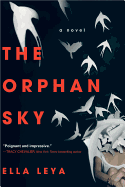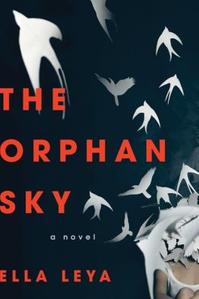

"By the time I turned fifteen, Communism had become my religion.... And God? Well, we had Lenin." In 1979 in Baku, Azerbaijan, Leila epitomizes the perfect Soviet teenager. She proves her dedication to her government by serving as a committed member of the Komsomol--the Communist Youth League--and by competing for the glory of her homeland as a promising concert pianist. Daughter of a prominent oilman, Leila's birth into the privileged nomenklatura comes with certain advantages, such as residence in a luxury apartment, access to music lessons with the exacting but brilliant Professor Sultan-zade, and the attention of handsome Comrade Farhad, who holds an important position on the city Komsomol Committee. When Farhad judges Leila's attitude too elitist, she jumps at the chance to redeem herself by spying on a suspected capitalist sympathizer who runs a music shop. Expecting corruption, she instead finds Tarhid, a passionate consumer and creator of art, music and literature whose time in the West opened his eyes to a liberated world. Although only a few years Leila's senior, Tarhid has lost much to the Communist cause. He unveils its hypocrisy to Leila, showing her the poverty in their allegedly classless city and revealing his family's sad history; he also introduces her to the smoky, forbidden flavor of jazz. Soon the two youths have struck up a clandestine friendship. A salon of two, their artistic endeavors feed into each other, Tarhid's painting helping Leila to find the soul in her music as her playing helps him to find his muse and create a painting that evokes "piano arpeggios in scarlet layers. Violin pizzicatos in gold and silver brushstrokes."
Leya captures a tense period in the history of a country that blended Turkish, Persian and Soviet cultures, where Communist corruption mingled with the remnants of sharia law. Her talent and gender combine to entrap Leila as she finds herself playing to her country's tune, forced into an engagement with the increasingly volatile Farhad, and struggling against a love for Tarhid she can never safely express. Leya slowly but inexorably shrinks the cage around Leila until her wings beat at the bars and she must show that she is no canary but rather the Firebird of her homeland's folktales. Breathing music and color into the direst moments with her lyrical prose, Leya shows that she herself is a talent who cannot be confined. --Jaclyn Fulwood, blogger at Infinite Reads
Shelf Talker: A brilliant young pianist finds her creativity and her heart at odds with her strict Communist upbringing in 1979 Azerbaijan.

